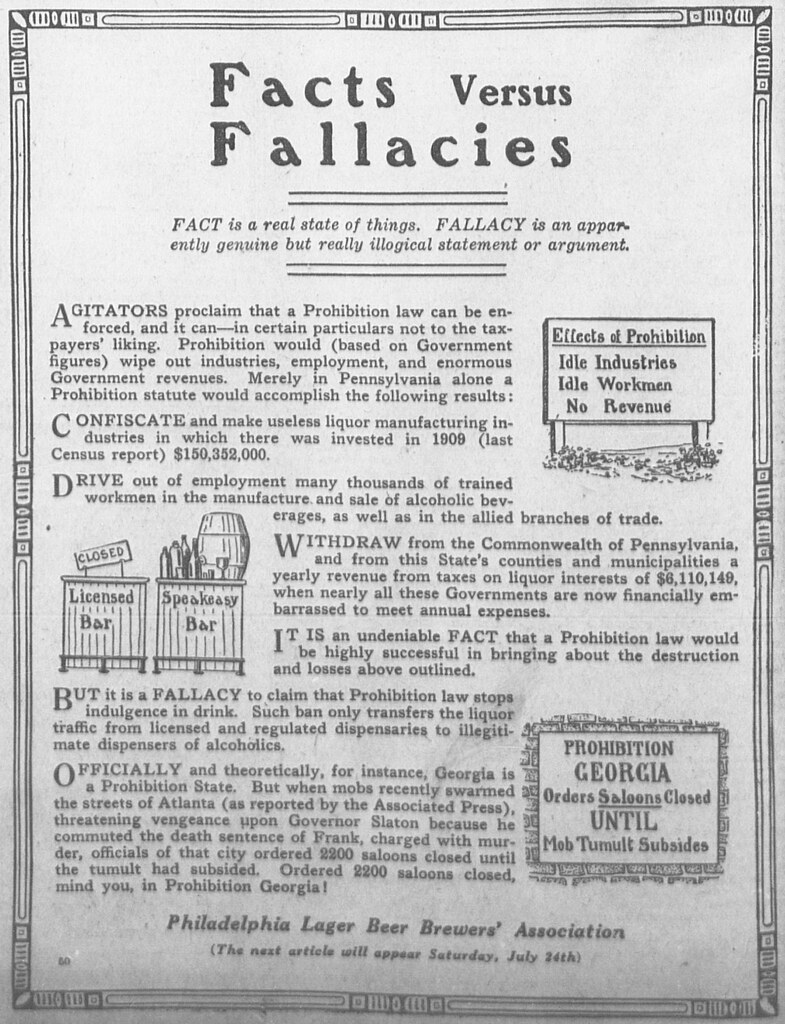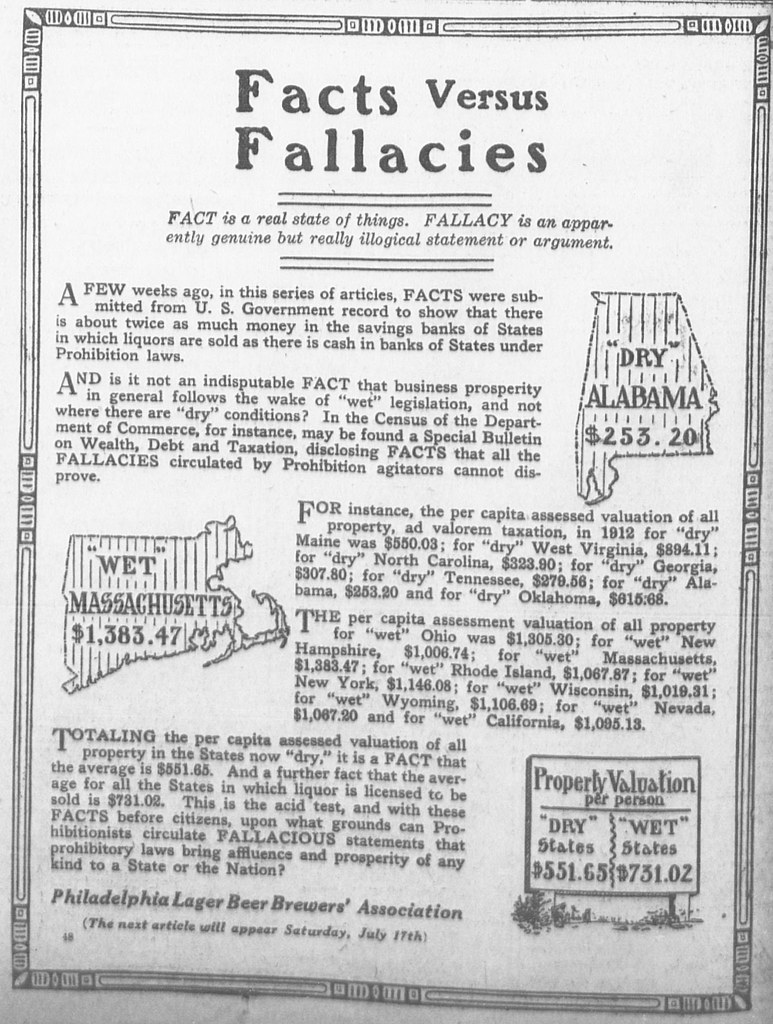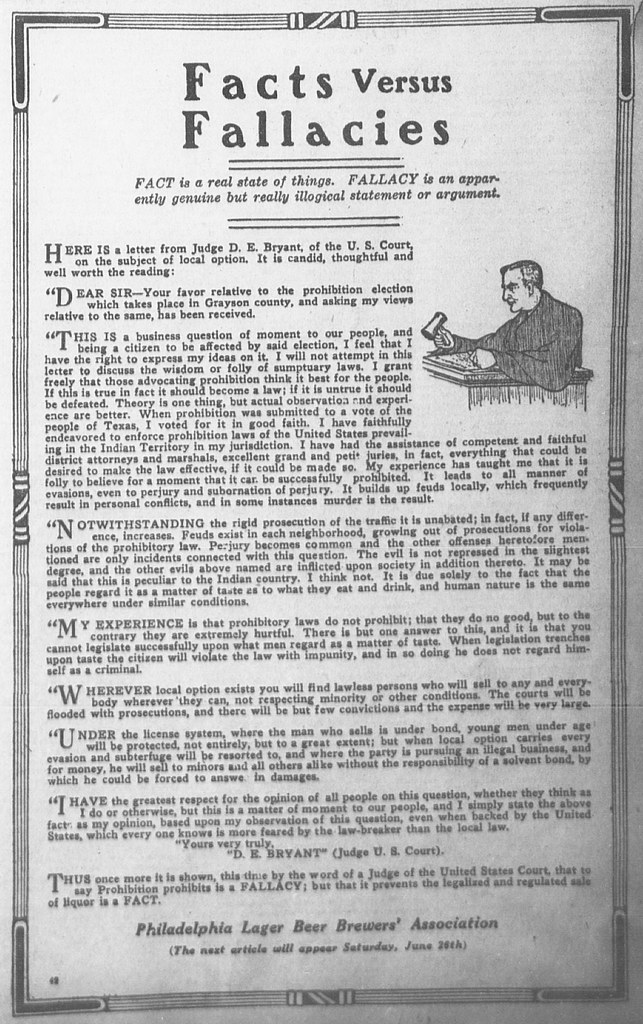
Sunday’s ad is another one for the Pennsylvania State Brewers Association, from 1915, No. 54 in series they did from 1915-17 called “Facts Versus Fallacies.” I have no idea how many were done but some of the them are numbered into low triple digits, suggesting there were a lot of them, all in an effort to stop Prohibition from happening and win over support for beer. This ad, marked “54,” and is about how Maine has fared with their 50-year prohibition, which began in 1846. Apparently, a prohibitionist group complained to the sitting governor that he should enforce the law, but he responded that he did not have the authority to do so, that only the legislature could do something, and that they had even impeached several sheriffs for not doing their jobs, only to have their replacements do even less to stop prohibition. So it would appear that Maine’s efforts at stopping people from drinking was an abject failure, and yet still prohibitionists continued agitating for a national ban on alcohol, knowing full well it was unlikely to do any good whatsoever.










